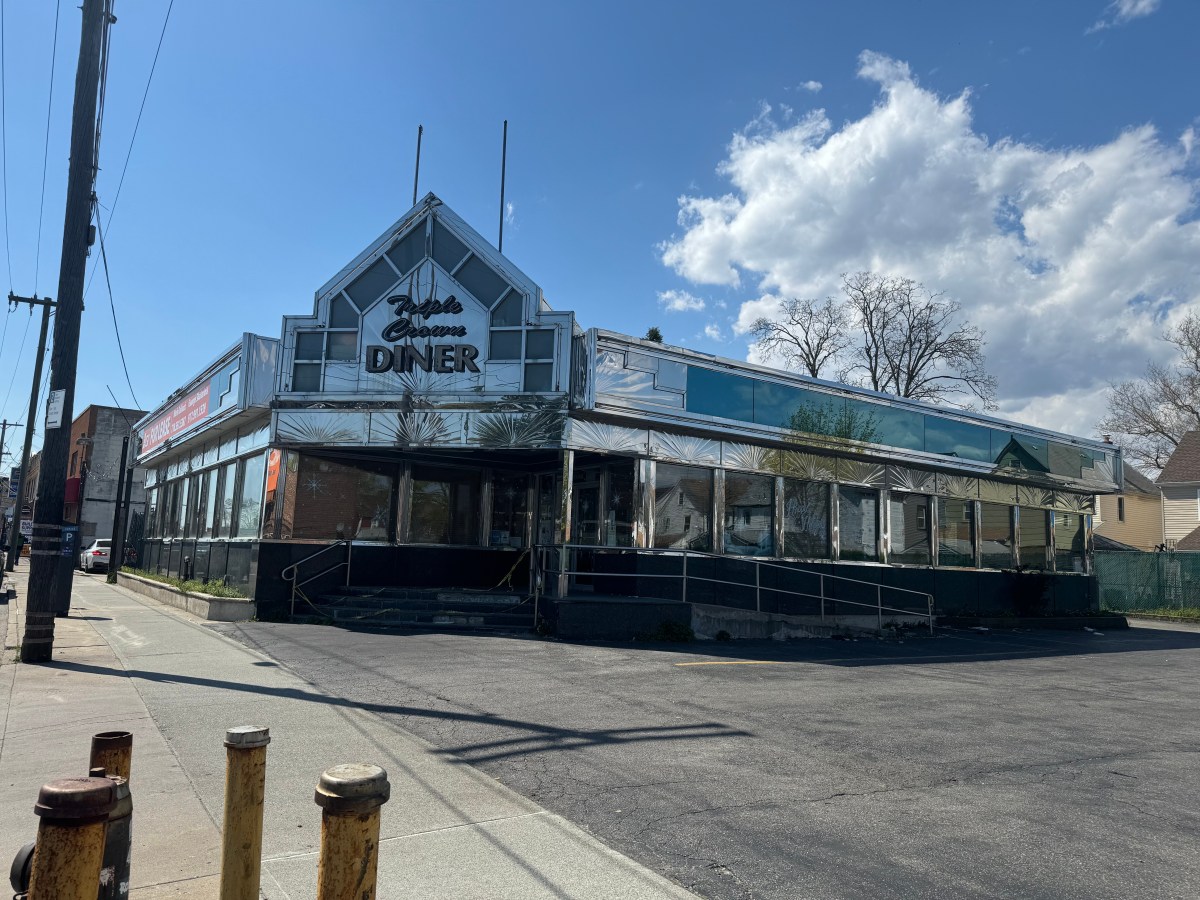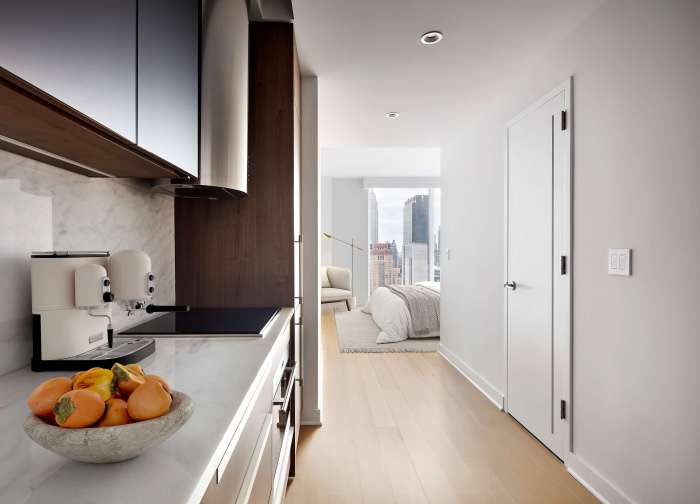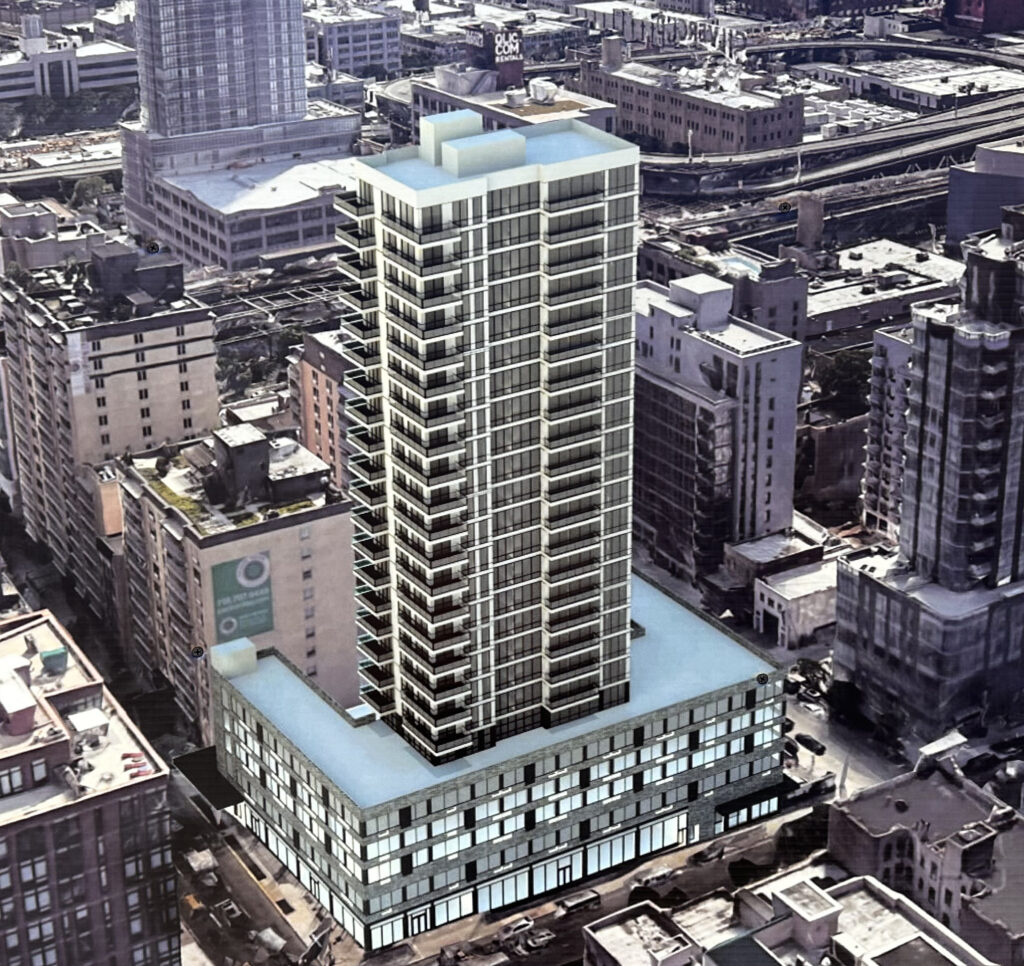
Google garnered a relatively muted reaction Monday when it announced in a blog post that it would invest $1 billion in a hub in Hudson Square, leasing space at 315 and 345 Hudson St. and signing a letter of intent at 550 Washington St.
Coupled with its already announced expansions at Pier 57 and in Chelsea, the larger portfolio would allow the company to double its current roster of 7,000 city employees within a decade, according to its blog.
Despite Disney’s anticipated arrival, three residences rising on the block and a spree of other developments in Hudson Square, Google’s plans for a 1.7 million-square-foot campus surprised Richard Blodgett, president of the Charlton Street Block Association.
"It’s a little bit shocking for a neighborhood that’s been a little bit small and out-of-the-way for so many years," said Blodgett, describing the Google campus as the "exclamation mark" capping off several high-profile projects ushered in by a 2013 rezoning. "The subways are more crowded . . . A good side is that there are a lot more restaurants and places to shop. A good side, too, is that at night it used to be quiet and dark around here . . . I’d always look over my shoulder."
Nearby civic groups said they were concerned Google’s campus would cause further crowding on the subways, and may further clog traffic traversing the Holland Tunnel. But none expressed grave reservations or the inclination to organize against the offices, as has occurred in Long Island City, where Amazon has caused controversy while slated to receive some $2.8 billion in public benefits for a forthcoming campus.
“Google has been a good corporate neighbor in Chelsea, so I am optimistic this is a good plan," said Council Speaker Corey Johnson, who represents Chelsea and parts of Hudson Square. "Comparing this Google deal to Amazon’s deal really highlights the fact that our . . . tax breaks are overdue for a real in-depth review. New York City is potentially on the hook for over $2 billion with Amazon, and Google is adding thousands of workers without billions in subsidies."
Blodgett said news coverage had given him the sense that Google has been a good neighbor in other communities, and that its arrival may bode well for the Spring Street subway station, which he described as rundown, and for the 1 train station on Houston Street.
"It’s not like we’re going to say, ‘How dare you come to our neighborhood,’" Blodgett said. "We don’t have that ability or inclination either, I guess. But hopefully it will work out for the best."
Andrew Berman, executive director of the Greenwich Village Society for Historic Preservation, also had reservations about the move snarling traffic and advancing tech office development in nearby neighborhoods, but he called the campus’ location "perfectly appropriate."
"It’s a commercial district. There’s large buildings there. They’re meant to house commercial entities like offices," Berman said. "We don’t have an objection to Google or anyone else utilizing the office space in that neighborhood."
Ellen Baer, president of the Hudson Square Business Improvement District, called the news "very exciting" for an area evolving from its past as a nexus of the printing industry.
"We’re happy to have more people coming here to exchange ideas and to stimulate the growth of the neighborhood," Baer said.
Mindful of that growth, State Sen. Brad Hoylman said Google should play a larger role in advocating for public investment in the subways, schools and other services, and enhance its local philanthropic efforts.
"It’s been a learning curve for Google," said Hoylman, who represents Chelsea and Hudson Square. "They haven’t taken the biggest role in any of the areas, but now that they want to be, if not the major employer in Manhattan, one of them, I think they’re going to have to."
Google did not comment on Hoylman’s analysis, but noted that it and its employees had contributed more than $150 million in grants in New York since 2011. The company said it also provided space free of charge for Cornell Tech when it was building its permanent campus on Roosevelt Island, and for Black Girls Code.

















